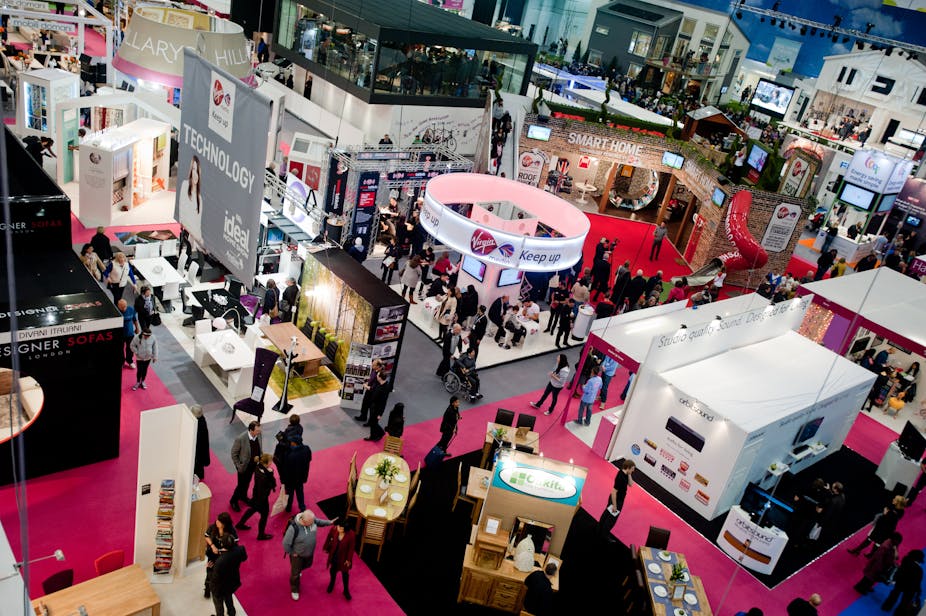The Transatlantic Trade and Investment Partnership (TTIP) is being vaunted as the world’s largest free trade agreement that promises to liberalise one-third of global trade.
But TTIP is not without its detractors; critics of many stripes have raised concerns about the erosion of democracy and regulatory sovereignty risked by the proposed deal.
These attacks are important and should be taken seriously – the public sphere should not shirk debate about its fundamental principles. If we are to pursue our civic goals in a mature and reasoned manner, we need a mature and reasoned debate about the benefits and costs of freer trade. However, the urgency of these critiques is often drowned out by a chorus of support singing the benefits of free trade.
The underlying idea is that free trade leads to countries and people being better off. This idea helps to write off misgivings about the political and democratic implications of the trade deal as merely the costs of doing business. These misgivings – even if somewhat troubling – are justified in the pursuit of gains that will ultimately make people economically better off.
Economic gains act to salve discomfort that we might feel at political levels: we are told to “ignore the critics” and “ignore the Left-wing mumbo-jumbo and support a treaty that will make us all richer”.
The narrow gains from trade
Estimates that seek to quantify gains from TTIP abound. Breathless claims of billions of euros of benefit have, though, been undermined by research highlighting the flimsy assumptions on which these are based.
Part of the problem is that empirically measuring the gains from freer trade is – as leading trade economists acknowledge – notoriously difficult. This is why supporters of free trade ultimately ground their advocacy in the theoretical case for it. This is encapsulated in economist David Ricardo’s theory of “comparative advantage”, which argues that free trade offers gains to all trading nations.
But what are these gains? Comparative advantage predicts only gains in immediate consumption. Free trade leads to a more efficient allocation of production globally. Overall output is maximised and more goods – more food, more cars, more computers and more clothes – are available. Real incomes rise and by implication countries can be better off and standards of living can improve.
But the case for free trade doesn’t promise the world. For example, it says little about economic growth – gains over time – instead focusing on more goods right now. Indeed, free trade may not always be the best policy for long-term economic growth. This is not to say that freer trade and growth are never related, just that this is not automatic.
Gains for some – but not others
Even if gains do accrue from trade, they may not be shared equally. Gains might be concentrated in some industries (for example car manufacturers or food producers), or some segments of the economy (corporate shareholders, certain geographical areas).
As free trade’s benefits are hinged on patterns of production shifting into more efficient shapes, free trade will cause losses. Some industries and actors will suffer so that others can prosper. We should not imagine that free trade – alone – leads to everyone being better off, at least not without some compensation for those whose losses pay for the gains of others.
Beyond consumption
Finally, we shouldn’t forget that trade arrangements have effects beyond commodities and their consumption. Trade is intended to cause countries to specialise efficiently. But patterns of specialisation have effects less-often counted in economic analysis – environmental effects, effects on the kind of work that people do, on the kind of industries that we have, on the kind of lives that people lead.
Do we want a strip mining industry? Do we want creative industries? Do we want people to regard their work as meaningful or drudgerous? Do we want to produce certain things at home rather than depend on others to produce them for us?
The case for free trade cares not a whit for the type of industries we want to promote, work people want to do, or society we want to foster. It promises more goods to consume right now. That is all.
False choices and free trade
Advocates of the TTIP tell us we are choosing between economic gains with some political quibbles, or a democratically pristine but ultimately economically worse off nation.
But the limited gains that the case for free trade promises should cause us to be less sanguine about sacrificing important social and political considerations at the altar of free trade. Even if the TTIP delivers free trade, it doesn’t promise that everyone will be better off, that our economy will grow, or that we will have the kind of economy – or society – that we might want.
We are not choosing between gains or democracy, we are choosing between different goals and objectives, and we should be clear-eyed and free from fiction when we do.
This shouldn’t disappoint us. In the end, carefully considering the case for free trade reminds us that our economic arrangements are ours to make – not for us to passively receive through mechanical operation of the market.
TTIP requires that we think – hard and collectively – about the kind of economic and social gains we want, and that we are more demanding of our politics to ensure that what we get from economic policy is what we want.

